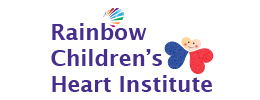Bacterial Endocarditis in children is a condition that occurs when the lining of the heart known as endocardium and the heart valves are infected. It is caused when bacteria enter the heart and cause infection. Even though it is a rare disorder, it can lead to serious heart damage.
Causes of Bacterial Endocarditis
There are multiple ways for bacteria to enter the body. Having heart problems can increase the possibility of bacteria affecting the heart. Here are some common ways for the bacteria to get inside the blood:
- Dental work like professional tooth cleaning.
- Medical procedures like using a bronchoscope or examining the airways.
- Surgery for removing the adenoids or tonsils.
- Surgery of the respiratory, urinary tract, and gastrointestinal system.
Risk factors for Bacterial Endocarditis
Children with the following conditions are at a higher risk of developing bacterial endocarditis:
- Congenital heart disease
- Artificial or prosthetic heart valves
- Indwelling central venous catheter
- A weak immune system
- Rheumatic heart disease
- Had endocarditis before
- Had a heart transplant
- Improper functioning of the heart valves.
It is crucial to discuss the risk factors of the child with the doctor.
Symptoms of Bacterial Endocarditis
Symptoms of Bacterial Endocarditis can be different for each child. Here are some of them:
- Flu-like symptoms like chills, fever, aching joints and muscles, headaches, tiredness, and night sweats.
- Cough
- Shortness of breath
- Skin changes like pale skin, spots on the soles of the feet and palms of the hands
- Bumps under the skin on the toes and fingers
- Tony spots under the nails, in the mouth, whites of the eyes or on the chest because of broken blood vessels
- Discomfort in the belly
- Vomiting, nausea, weight loss, and decreased appetite
- Swelling of the legs, feet, or abdomen
- Blood in the urine.
Diagnosis of Bacterial Endocarditis in children
After the doctor has asked about the health history and symptoms of the child, they will give them a physical exam. At Rainbow Children’s Heart Institute, the pediatric cardiologist surgeon will order one of the following tests to diagnose the condition:
- Echocardiogram – In this test, the specialist uses sound waves for making a moving picture of the heart valves and the heart. The doctor will be able to see the child’s heart structure and see how well it is functioning. The test will reveal if you have had a heart valve infection.
- Complete Blood Count (CBC) – In this test, the specialist will get a look at all the different types of blood cells in the child including white cells, red cells, and platelets.
- Blood culture – Through this, the specialist will be able to look for infection in the child’s blood.
Treatment of Bacterial Endocarditis in children
The treatment of Bacterial Endocarditis depends on the age, general health, and symptoms of the child. It will also depend on the severity of the conditions. The treatment will be done by an infectious disease specialist and a pediatric cardiologist (child heart specialist). Here is what it will include:
- Antibiotics – Antibiotics will be given to the child through the vein (IV) for weeks. The child will have to stay in the hospital during this.
- Surgery – In some cases, children might have to go through a valve replacement surgery, especially if the infection is not cleared because of an abscess or if the heart valve damage is severe.
Complications of Bacterial Endocarditis
Here are a few complications of Bacterial Endocarditis in children:
- Heart failure
- Kidney disease
- Clumps of bacteria or blood clots travelling to other body parts like arteries in the brain, heart, bowel, spleen, legs, or arms
- Infection in other areas of the heart
- Weakened blood vessels in the brain
- Death
Prevention of Bacterial Endocarditis in children
It is not possible to completely prevent Bacterial Endocarditis. However, there are a few things that might help, including the following:
- Making the child take good care of their teeth and gums.
- Taking the child to the dentist for regular checkups and cleaning.
- Practicing good hygiene.
- Having the child take complete antibiotics preparation when they are used for treating infections like strep throat.
Some children who have heart problems have to take antibiotics before their medical and dental procedures. The doctor will let the parent know if the child needs antibiotics.
If a child has Bacterial Endocarditis, they will need ongoing care like regular dental checkups, regular health checkups, repeat blood tests and echocardiograms after the infection, and good oral hygiene by brushing and flossing. Visit the best cardiology specialist in Hyderabad at Rainbow Children’s Heart Institute to ensure that the child gets the highest quality medical care.
